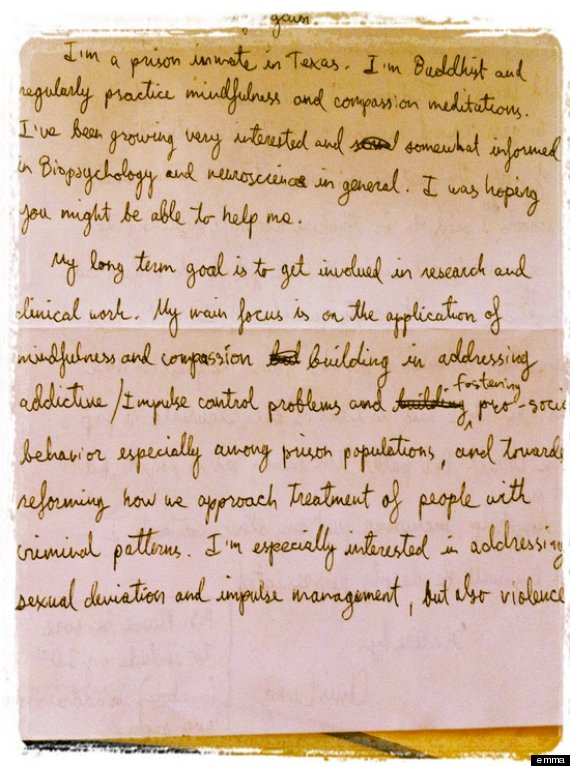
A few weeks ago, an unprecedented letter arrived at our office at the Center for Compassion and Altruism Research and Education at Stanford University. Here is an excerpt:

The purpose of the inmate’s letter was to request reading materials pertaining to research on meditation and the brain. His goal upon his release is to get a Ph.D. in psychology or neuroscience. Through that, he hopes to help others who, like himself, find themselves behind bars because of criminal impulses. In his four years of jail time he has obviously been dedicating himself to his passion: His letter demonstrates an extensive knowledge of the top academic organizations for research on neuroscience and meditation.
Our staff at CCARE was moved by this letter and gathered reading material to mail to him immediately. In particular, we were touched that, rather than playing the victim card or being angry at his fate, he instead aspired to education and wisdom out of a desire to help others. Whereas anger or victimhood would have weakened him, his compassionate stance has empowered him. In fact, he displayed more enthusiasm behind bars than many a free man. Why? An altruistic vision and goal is not only empowering but also leads to well-being. As we have explored in our last posts, research is showing that not only are compassion and altruism beneficial to others, these qualities also improve our physical and psychological health.







